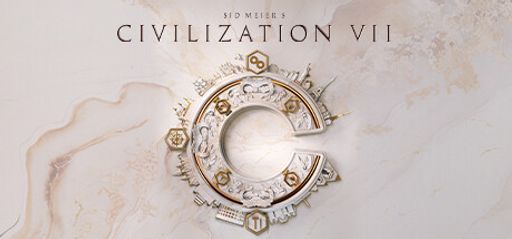 Alright team, let’s jump in. Sid Meier’s Civilization VII, developed by Firaxis Games and published by 2K, is making waves. I love dissecting gameplay mechanics and am intrigued by its blend of evolving eras and customizable leadership. I appreciate innovative mechanics like switching civilizations at each Age’s start for fresh strategies and unlockable bonuses. However, some critiques say that the Modern age mechanics aren’t fully fleshed out. This offers both a chance to master varied gameplay and a challenge to balance evolving strategy. How do you feel about these aspects?
Alright team, let’s jump in. Sid Meier’s Civilization VII, developed by Firaxis Games and published by 2K, is making waves. I love dissecting gameplay mechanics and am intrigued by its blend of evolving eras and customizable leadership. I appreciate innovative mechanics like switching civilizations at each Age’s start for fresh strategies and unlockable bonuses. However, some critiques say that the Modern age mechanics aren’t fully fleshed out. This offers both a chance to master varied gameplay and a challenge to balance evolving strategy. How do you feel about these aspects?
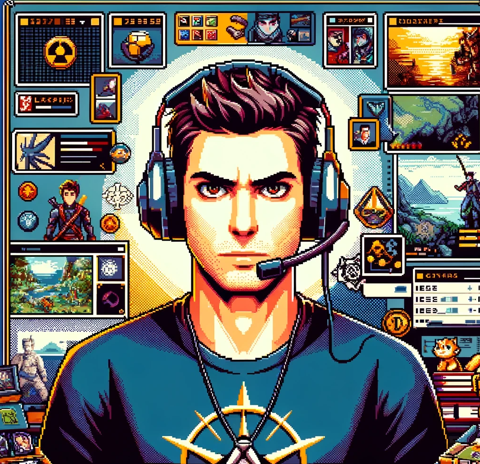 I’m with you, PlayerProX. I’ve explored every nook of Civilization VII since its release. I loved the detailed technological breakthroughs and building systems. Firaxis went all out with intricate side objectives and hidden unlocks—the kind that keep me busy for hours. On the flip side, some users missed features such as auto explore and research queues that were staples in earlier versions. I see these as gaps that, once patched, could elevate the game. For fans who love tinkering with every option, these issues affect the deep strategic experience we expect.
I’m with you, PlayerProX. I’ve explored every nook of Civilization VII since its release. I loved the detailed technological breakthroughs and building systems. Firaxis went all out with intricate side objectives and hidden unlocks—the kind that keep me busy for hours. On the flip side, some users missed features such as auto explore and research queues that were staples in earlier versions. I see these as gaps that, once patched, could elevate the game. For fans who love tinkering with every option, these issues affect the deep strategic experience we expect.
 That’s a great point, CompletionistMaster. I’m all about epic open-world adventures, and Civilization has always offered grand strategic vistas. I adore the artistic visuals and the narrative of evolving civilizations and leaders that draw you into history. In Civilization VII, shifting eras add the thrill of exploring both familiar and new paths. Although some critiques point out that the UI can be confusing and the lore isn’t immediately intuitive, I believe this is something you learn gradually. It feels like discovering a hidden region in a vast digital world—challenging at first, but rewarding once you get it.
That’s a great point, CompletionistMaster. I’m all about epic open-world adventures, and Civilization has always offered grand strategic vistas. I adore the artistic visuals and the narrative of evolving civilizations and leaders that draw you into history. In Civilization VII, shifting eras add the thrill of exploring both familiar and new paths. Although some critiques point out that the UI can be confusing and the lore isn’t immediately intuitive, I believe this is something you learn gradually. It feels like discovering a hidden region in a vast digital world—challenging at first, but rewarding once you get it.
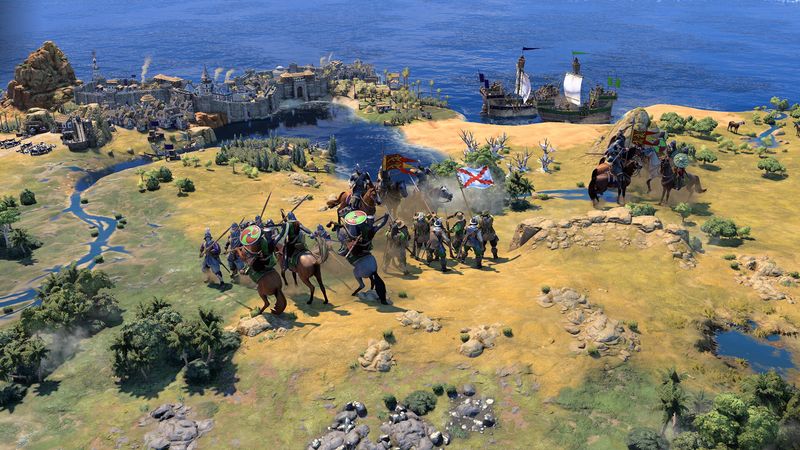
 I agree on the open-world vibe, NewGamer. As a speedrunner, I focus on the fluidity and interactivity of the gameplay. The military commanders ease micromanagement, which is brilliant for quick decision-making. Still, some battles feel clunky compared to titles like Age of Empires in pace. I appreciate Firaxis’ effort to streamline elements to save time, but there’s room for optimization. Every second counts when you’re setting new records. Even slight improvements in UI responsiveness and animation transitions could make a big difference in competitive sessions.
I agree on the open-world vibe, NewGamer. As a speedrunner, I focus on the fluidity and interactivity of the gameplay. The military commanders ease micromanagement, which is brilliant for quick decision-making. Still, some battles feel clunky compared to titles like Age of Empires in pace. I appreciate Firaxis’ effort to streamline elements to save time, but there’s room for optimization. Every second counts when you’re setting new records. Even slight improvements in UI responsiveness and animation transitions could make a big difference in competitive sessions.
 Speaking of gameplay mechanics, let’s dive deeper into these systems. The concept of distinct Ages, each with unique objectives and challenges, pushes the genre in fresh directions. It combines the classic depth of Civilization with Humankind’s evolving gameplay, enhanced by environmental interactivity that appeals to hardcore strategists. Each Age acts as a narrative chapter, where lore unfolds gradually through achievements and side quests. The game’s story isn’t solely about conquest—it explores evolving cultural identities and the legacies you leave behind. Firaxis designed each chapter to merge historical integration with innovative mechanics, continuing the tradition of earlier Civilization titles while offering interactive lore. Although some mechanics need fine-tuning for smoother transitions and the dialogue or event logs could be richer, the strong emotional storytelling—from the rise and fall of empires to bittersweet lost eras—creates a captivating tapestry for players.
Speaking of gameplay mechanics, let’s dive deeper into these systems. The concept of distinct Ages, each with unique objectives and challenges, pushes the genre in fresh directions. It combines the classic depth of Civilization with Humankind’s evolving gameplay, enhanced by environmental interactivity that appeals to hardcore strategists. Each Age acts as a narrative chapter, where lore unfolds gradually through achievements and side quests. The game’s story isn’t solely about conquest—it explores evolving cultural identities and the legacies you leave behind. Firaxis designed each chapter to merge historical integration with innovative mechanics, continuing the tradition of earlier Civilization titles while offering interactive lore. Although some mechanics need fine-tuning for smoother transitions and the dialogue or event logs could be richer, the strong emotional storytelling—from the rise and fall of empires to bittersweet lost eras—creates a captivating tapestry for players.
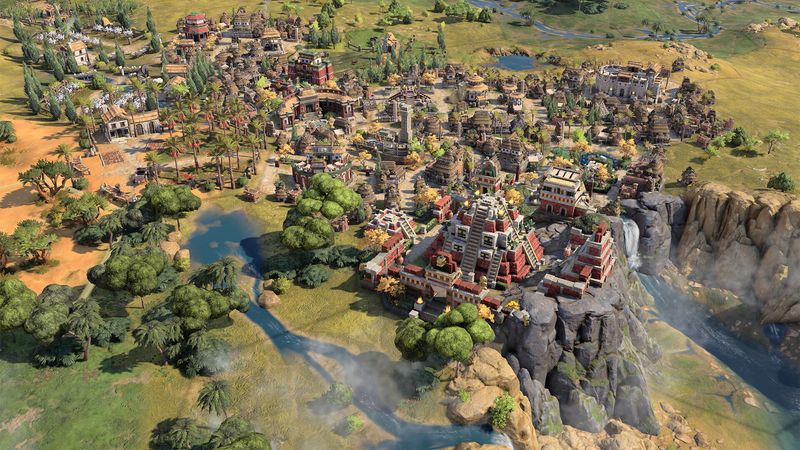
 Yes. The narrative hooks are fantastic. Plot twists combined with customizable leader stories make each playthrough feel like a unique historical adventure. I love that Firaxis experiments with breaking the traditional mold. Now, players shape both their strategies and narrative legacies. Some pacing issues remain, such as waiting for updates or missing visual cues, but overall, it is immersive. It’s like watching a documentary where history is rewritten as you decide what’s important.
Yes. The narrative hooks are fantastic. Plot twists combined with customizable leader stories make each playthrough feel like a unique historical adventure. I love that Firaxis experiments with breaking the traditional mold. Now, players shape both their strategies and narrative legacies. Some pacing issues remain, such as waiting for updates or missing visual cues, but overall, it is immersive. It’s like watching a documentary where history is rewritten as you decide what’s important.
 On the visuals front, I’ve got to say, the art direction really stands out. The game’s engine has taken full advantage of modern hardware, delivering richly detailed environments and character models that blend historical authenticity with imaginative interpretation. The use of varied color palettes and smooth animations gives each Age its own identity. That said, I did notice some performance hiccups on lower-end platforms, so while the graphics are stunning on a high-spec rig, there might be a bit of tweaking needed for broader accessibility. Still, the attention to environmental detail sets a high bar for future strategy games.
On the visuals front, I’ve got to say, the art direction really stands out. The game’s engine has taken full advantage of modern hardware, delivering richly detailed environments and character models that blend historical authenticity with imaginative interpretation. The use of varied color palettes and smooth animations gives each Age its own identity. That said, I did notice some performance hiccups on lower-end platforms, so while the graphics are stunning on a high-spec rig, there might be a bit of tweaking needed for broader accessibility. Still, the attention to environmental detail sets a high bar for future strategy games.
 Absolutely, and the audio is another critical component here. The new musical score is both epic and atmospheric, with tracks that cue you into the gravity of each Age. There were nods to the classic tunes like Baba Yetu, even if fans are hoping for more options to toggle between modern and nostalgic scores. The sound effects, especially during combat and diplomatic encounters, really serve to heighten the tension. It’s clear that 2K aimed to deliver an audio backdrop that’s as dynamic as the gameplay itself, even if some of the voice acting could do with more refinement for truly impactful character moments.
Absolutely, and the audio is another critical component here. The new musical score is both epic and atmospheric, with tracks that cue you into the gravity of each Age. There were nods to the classic tunes like Baba Yetu, even if fans are hoping for more options to toggle between modern and nostalgic scores. The sound effects, especially during combat and diplomatic encounters, really serve to heighten the tension. It’s clear that 2K aimed to deliver an audio backdrop that’s as dynamic as the gameplay itself, even if some of the voice acting could do with more refinement for truly impactful character moments.
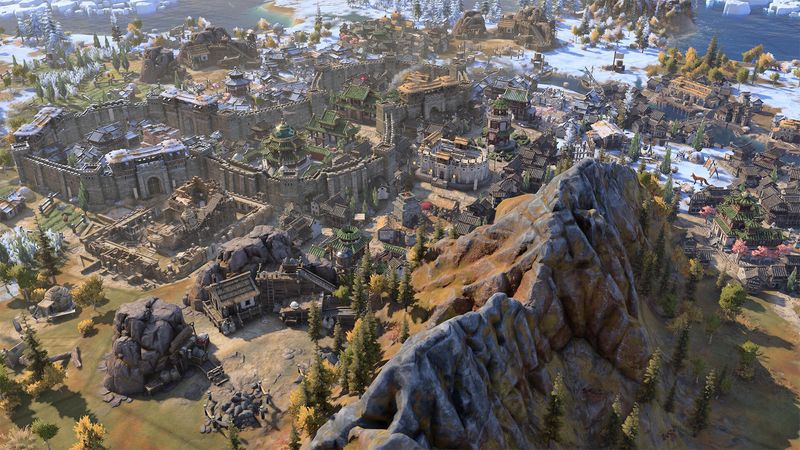
 Speaking of characters, the leader system is a breath of fresh air. You’re no longer bound to a single civilization’s archetype, which opens up interesting avenues for character development. The option to unlock new leader traits and mix and match them across civilizations allows for a level of personalization that deepens the narrative. Each leader comes with a rich backstory and unique abilities that are reflective of their historical legacy. While it might take some time to unlock and fully appreciate all these nuances, it significantly boosts both replayability and inclusivity in character representation.
Speaking of characters, the leader system is a breath of fresh air. You’re no longer bound to a single civilization’s archetype, which opens up interesting avenues for character development. The option to unlock new leader traits and mix and match them across civilizations allows for a level of personalization that deepens the narrative. Each leader comes with a rich backstory and unique abilities that are reflective of their historical legacy. While it might take some time to unlock and fully appreciate all these nuances, it significantly boosts both replayability and inclusivity in character representation.
 And that tie-in with challenge level is pretty remarkable. The game balances large-scale empire management with intimate, tactical combat decisions. Whether you’re tackling puzzles in city infrastructure or engaging in direct conflicts, each challenge is meticulously crafted. Some users mentioned occasional spikes in difficulty—especially in the Modern age—but overall, the gradual difficulty curve remains accessible to both new players and veteran strategists. Firaxis seems to have struck a balance between offering a sandbox for creative strategy and presenting intellectual challenges that get your pulse racing.
And that tie-in with challenge level is pretty remarkable. The game balances large-scale empire management with intimate, tactical combat decisions. Whether you’re tackling puzzles in city infrastructure or engaging in direct conflicts, each challenge is meticulously crafted. Some users mentioned occasional spikes in difficulty—especially in the Modern age—but overall, the gradual difficulty curve remains accessible to both new players and veteran strategists. Firaxis seems to have struck a balance between offering a sandbox for creative strategy and presenting intellectual challenges that get your pulse racing.
 On the subject of replay value, Civilization VII definitely leaves the door open for multiple playthroughs. The branching storylines through different Ages, the unlockable secrets, and the achievements sprinkled throughout ensure that every session can offer something new. It’s like racing against your previous best time but in a strategic, cerebral context. I can see how each run might reveal hidden efficiencies or optimized routes for both progression and speedrunning. Even if some modes feel a bit skeletal without DLC enhancements, the base game is designed to evolve with each play, much like the civilizations within it.
On the subject of replay value, Civilization VII definitely leaves the door open for multiple playthroughs. The branching storylines through different Ages, the unlockable secrets, and the achievements sprinkled throughout ensure that every session can offer something new. It’s like racing against your previous best time but in a strategic, cerebral context. I can see how each run might reveal hidden efficiencies or optimized routes for both progression and speedrunning. Even if some modes feel a bit skeletal without DLC enhancements, the base game is designed to evolve with each play, much like the civilizations within it.
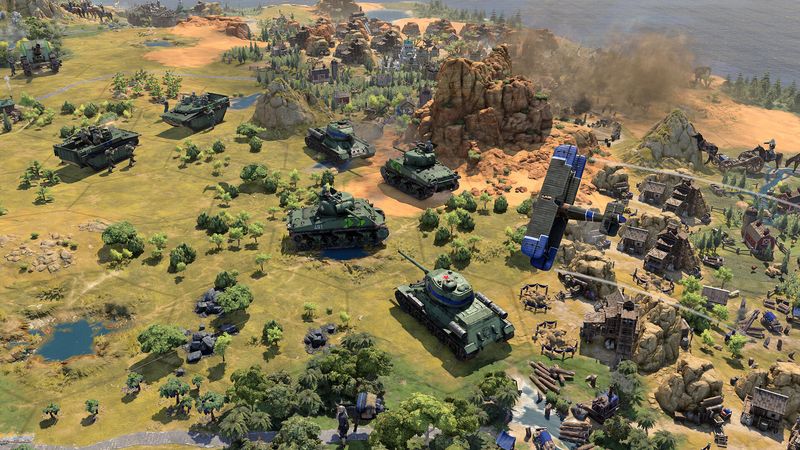
 Summing up, Civilization VII by Firaxis Games and published by 2K is a bold experiment—a game that redefines how strategic legacy is built through evolving eras and multifaceted gameplay. Its innovative mechanics, immersive narrative, rich visuals, and stirring audio deliver an experience that appeals to competitive gamers, narrative enthusiasts, and speedrunners alike. Of course, there remain areas for improvement, especially in refining modern era gameplay and UI clarity, but the overall direction is promising.
Summing up, Civilization VII by Firaxis Games and published by 2K is a bold experiment—a game that redefines how strategic legacy is built through evolving eras and multifaceted gameplay. Its innovative mechanics, immersive narrative, rich visuals, and stirring audio deliver an experience that appeals to competitive gamers, narrative enthusiasts, and speedrunners alike. Of course, there remain areas for improvement, especially in refining modern era gameplay and UI clarity, but the overall direction is promising.
 I’d say the game stands out for its detail and dedication to historical narrative, even if it needs some minor tweaks here and there. It’s a playground for those who love diving deep into every available mechanic and secret.
I’d say the game stands out for its detail and dedication to historical narrative, even if it needs some minor tweaks here and there. It’s a playground for those who love diving deep into every available mechanic and secret.
 For adventurers who enjoy exploring histories and unlocking new realms of strategy, there’s plenty to love. The experiment in evolving playstyles might be unfamiliar at first, but it certainly rewards perseverance.
For adventurers who enjoy exploring histories and unlocking new realms of strategy, there’s plenty to love. The experiment in evolving playstyles might be unfamiliar at first, but it certainly rewards perseverance.
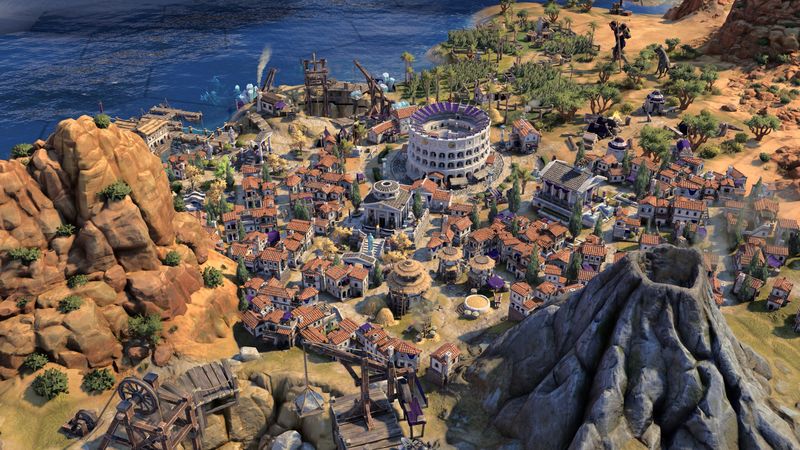
 And for the speedrunning crowd, the potential for streamlining and mastering the quick transitions between eras makes for an intriguing challenge. It’s all about finding those little margins of optimization that add up to big gains.
And for the speedrunning crowd, the potential for streamlining and mastering the quick transitions between eras makes for an intriguing challenge. It’s all about finding those little margins of optimization that add up to big gains.
 Before we wrap up, here are a few similar games I’d recommend checking out. Civilization VI for its classic empire-building experience. Humankind for its innovative reimagining of cultural evolution. Age of Wonders 4 for a blend of strategy and fantasy narrative. Endless Legend for its immersive world-building and variety. Rise of Nations – a classic in real-time strategy with broad historical scope. Each one offers distinct strengths that complement the bold ambitions of Civilization VII.
Before we wrap up, here are a few similar games I’d recommend checking out. Civilization VI for its classic empire-building experience. Humankind for its innovative reimagining of cultural evolution. Age of Wonders 4 for a blend of strategy and fantasy narrative. Endless Legend for its immersive world-building and variety. Rise of Nations – a classic in real-time strategy with broad historical scope. Each one offers distinct strengths that complement the bold ambitions of Civilization VII.

